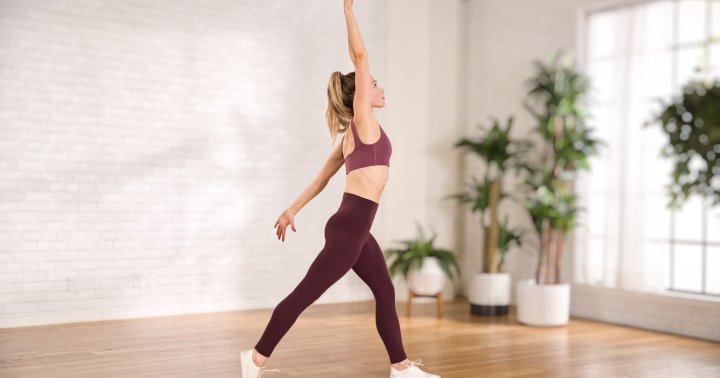3 Easy Steps To Firmer, Smoother Legs, From A Beauty Editor
It's that time of the year when I start to think more and more about my legs. You too?

Advertisement
This ad is displayed using third party content and we do not control its accessibility features.

Senior Beauty & Lifestyle Director
Senior Beauty & Lifestyle Director
Alexandra Engler is the senior beauty and lifestyle director at mindbodygreen and host of the beauty podcast Clean Beauty School. Previously, she's held beauty roles at Harper's Bazaar, Marie Claire, SELF, and Cosmopolitan; her byline has appeared in Esquire, Sports Illustrated, and Allure.com.
Image by Liliya Rodnikova / Stocksy October 05, 2024 It's that time of the year when I start to think more and more about my legs. The layers come off, the skin comes out, and all of a sudden adopting a more thorough body care routine starts to sound like a great idea. I'll be honest with you: I've always been a bit self-conscious about the skin on my legs. I often deal with strawberry skin (or skin that looks congested post-shave), as well as just generally having dry skin on my body. And like a lot of folks, I also deal with dimpling and bumpiness on my thighs (this is sometimes called "orange peel skin"—the beauty industry really loves comparing skin to fruit, I guess?). Essentially my skin just isn't as smooth and silky as I'd like it to be naturally. The good news is that I've hit a point in life when things like this really don't bother me. Skin is skin is skin—and rarely does it look as flawless as it might in Photoshopped advertisements. Perfectionism is no longer a goal of mine, and I'd rather just have my skin look healthy. But just because I don't care that it's not "perfect" doesn't mean I give up caring for my skin entirely. Quite the opposite! I will happily indulge in a body care routine that puts the health of my skin first. And guess what? My skin has never looked or felt better. 
Hydrate daily with a barrier-supporting lotion
I can not overstate the importance of daily hydration for skin health. There is nothing more important for skin appearance than daily moisturization and barrier support. Here's why:
The lesson here is: Don't skimp on hydration!
If you want more guidance on what to look for in a lotion, we love botanical-rich blends that have been shown to support skin function. For example, antioxidants like coenzyme Q10 can protect skin cells from free radical damage.
Shea butter and oat oil have both been shown to help boost ceramides in the skin and bolster the barrier. And aloe vera is a plumping humectant that also feeds the skin vitamins, minerals, and enzymes.
mindbodygreen's postbiotic body lotion uses these ingredients, plus a special biotech postbiotic ingredient that improves epidermal framework reconstruction, so skin is stronger and looks smoother with use.
Exfoliate and tone weekly
If you experience dimples on the skin (most of us do, including myself), you might benefit from looking for a toning body cream or one formulated to treat crepey skin (as there'll be ingredient overlap).
Toning creams may have active ingredients to help tighten the skin and strengthen the epidermis. Look for these active ingredients:
As I noted above, it's important to make sure you use these treatments alongside body moisturizers and lotions, though—if you're not careful, using potent actives can end up disrupting the skin barrier and damaging the skin.
Keep proper shaving hygiene
If you choose to remove body hair, it's vital that you maintain proper shaving hygiene. Between razor burn, bumps, and "strawberry legs," improper shaving can lead to a host of aesthetic issues.
Here's a quick rundown of tips:
The takeaway
Getting smooth, supple, hydrated skin head to toe doesn't need a full routine overhaul. Just look for smart hydrators with barrier-supporting actives, regularly exfoliate, and maintain proper shaving hygiene.

 AbJimroe
AbJimroe -v1646695196476.jpg?1148x800)
































